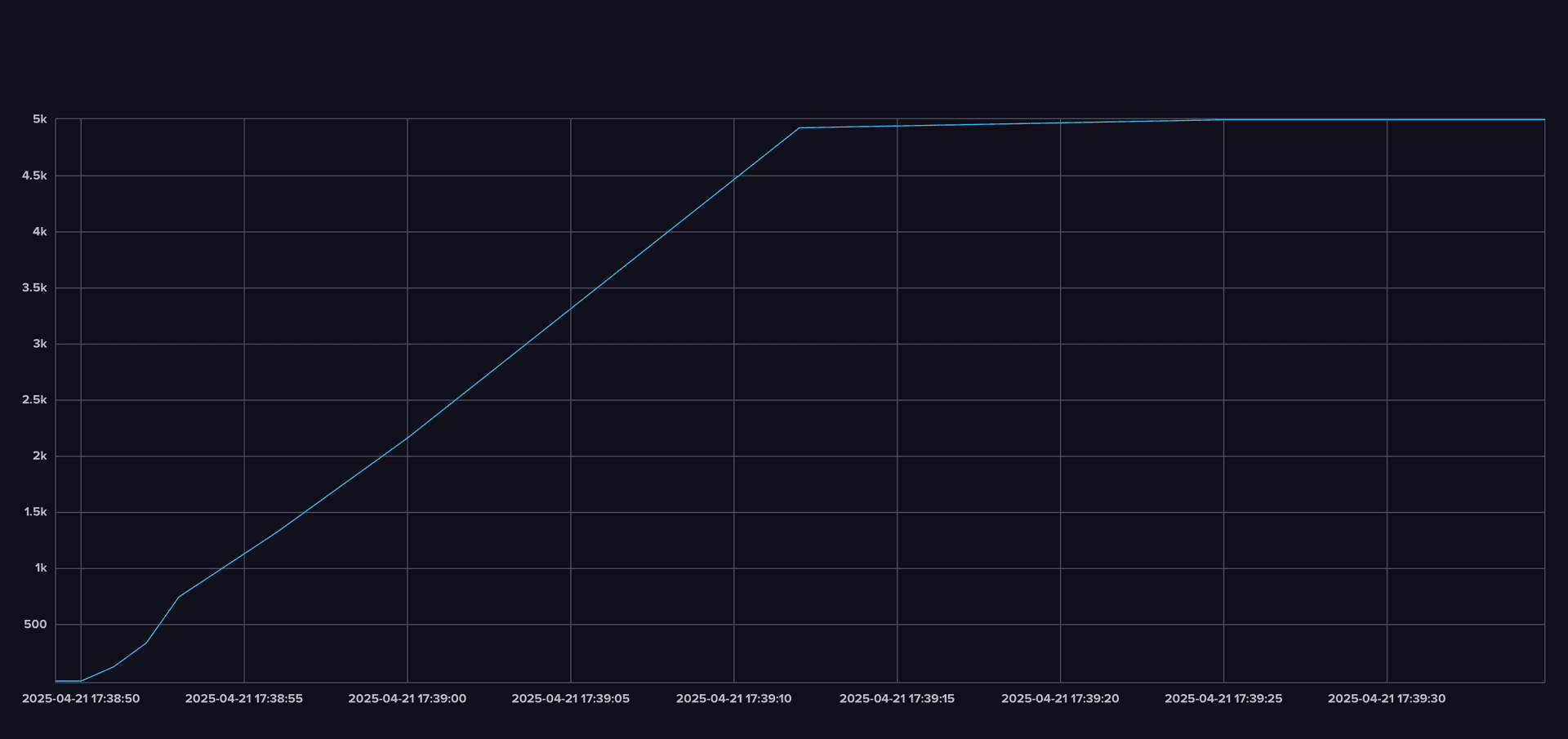We've raised a $4m pre-seed round led by Streamlined Ventures to advance machine intelligence. Our mission is to create powerful, practical tools for human-machine collaboration. With that, we're excited to announce Tzafon-WayPoint—our open-source solution for scaling massive fleets of browser instances effortlessly.
Tzafon-WayPoint: Open source infra to scale massive fleets of browsers without friction.
At Tzafon, we aim to push the frontier of what's possible at the intersection of advanced AI and high‑performance engineering. Today, we're open sourcing our first product: WayPoint, a robust, scalable solution for managing large fleets of browser instances. WayPoint stands out with unmatched cold‑start speed—launching up to a 1000 browser per second on standard GCP hardware Waypoint combines extraordinary scalability, easily handling well over 10,000 browsers without issue, with robustness – achieving a 0% error rate on startup. We've also decided to emphasize ease of use, to ensure you as a developer can integrate WayPoint into your workflows and scale automation tasks smoothly. Simply put, existing solutions weren't cutting it for us—so we built something better and now we're open‑sourcing it.
What exactly is WayPoint?
WayPoint makes managing thousands of browser instances feel effortless. Imagine spinning up thousands of browsers within seconds, each handling complex automation tasks with minimal latency. Whether you're dealing with large-scale web scraping, rigorous automated testing, or powering sophisticated AI-driven interactions, WayPoint delivers smooth, reliable, and ultra-efficient performance.
The team behind WayPoint
We're Tzafon – an AGI infrastructure lab obsessed about performance and developer experience. While training our Large Action Models, we quickly hit a wall: existing browser automation infrastructures just weren't designed for the scale and speed we needed. We required massive scalability, consistent reliability, quick startup times, all the while ensuring a friendly developer experience—qualities that proved elusive with available tools.
Our training workloads are demanding. To generate data for our Large Action Models, we have to manage tens of thousands of browser instances, each running several tabs simultaneously. These browsers executed Monte Carlo Tree Search (MCTS) paths, typically involving around five interaction steps per session. Existing systems either crashed frequently, suffered from severe performance issues, or required convoluted setups that slowed down our workflow drastically.
This challenge led us to build WayPoint. Completely engineered in Rust and meticulously built to handle our rigorous use cases, WayPoint transformed our automation workflows. Seeing its immediate impact, we knew it could benefit many other developers facing similar issues. That's why we're excited to open-source WayPoint, contributing back to the community and inviting collaborative innovation.
Why Rust?
Our choice of Rust to power WayPoint is strategic. Rust offers exceptional performance, safety, and scalability. Its memory-safe features drastically reduce crashes and simplify concurrent operations. Our socket library built in Rust efficiently handles Chrome DevTools Protocol (CDP) and manages thousands of simultaneous WebSocket connections without noticeable performance penalties.
Real-time responsiveness was non-negotiable when working with CDP—Rust's exceptional speed and reliability provided the necessary foundation for minimal-latency interactions.
Robust communication with gRPC
Reliability & performance is essential, so we chose gRPC for communication within WayPoint's infrastructure. Compared to REST, gRPC's efficient serialization significantly improves performance and ensures effortless addition of new services
Instant scalability with Warmpool
Early on, we faced the crucial challenge of achieving near-instant scalability. Our demanding workloads couldn't wait for traditional slow-start methods. To address this, we've implemented a "warmpool"—a pool of pre-initialized browser instances ready for instant activation [it really is instant]. The metric that guided us was clear: "how quickly can we have a browser ready for use" With our warmpool strategy, we consistently achieved hundreds of browser launches near-instantly, enabling immediate scaling for even the most demanding scenarios.
Under the hood
WayPoint consists of several core components, each thoughtfully designed to handle high-intensity workloads:
- Instance Manager: Tracks browser instances, performs health checks, and manages lifecycles via robust gRPC communication.
- Browser Container: Quickly deploys headless Chrome instances, integrating Chrome DevTools Protocol and our proprietary Tzafonwright API.
- Ephemeral Browser Proxy: Dynamically routes user requests to optimal browser instances, ensuring maximum performance and reliability.
- Tzafonwright: Our intuitive Python toolkit designed for browser and desktop automation, seamlessly integrating tools like Playwright for broader functionality.
Benchmark

From 0 to 5k browsers in under 20 seconds.
Note: We recommend using Nomad with WayPoint, as its a leaner scheduler allows for even higher launch throughput per node. [With Kubernetes' scheduler, performance is quite significantly degraded]
Why WayPoint matters to us—and maybe to you
WayPoint was built to tackle practical, real-world engineering problems. Initially, it solved our internal browser automation bottlenecks, but we quickly realized its broader potential. By bringing computation closer to metal, WayPoint offers a faster, more dependable, and easier-to-maintain browser automation infrastructure. We're incredibly proud to share WayPoint with the developer community under the MIT license, and we're genuinely excited to see how you'll use it, adapt it, and expand upon it.
Try it out
WayPoint is now available—we invite you to dive in and explore:
- Check it out: Visit our GitHub repository.
- Pitch in: Contributions and feedback are warmly welcomed.
- Talk to us: Feel free to reach out—we'd love to hear your experiences, questions, and suggestions.
If you're interested in a more production-ready version, to join our waitlist and get early access!
This launch marks just the beginning of our journey. Stay tuned for what's next!
Follow us on X, GitHub, and LinkedIn.
– Tzafon team
